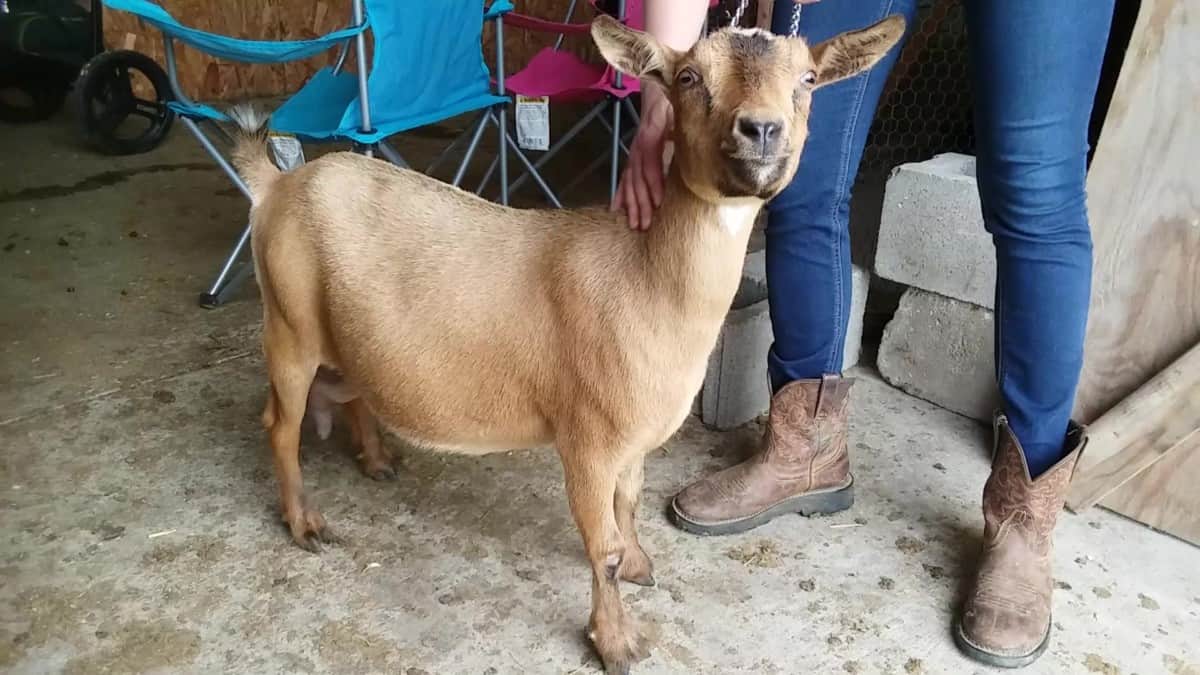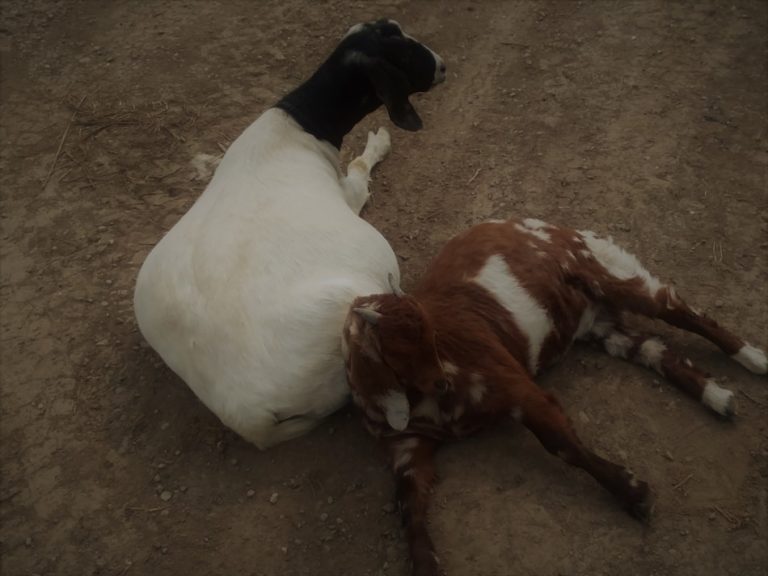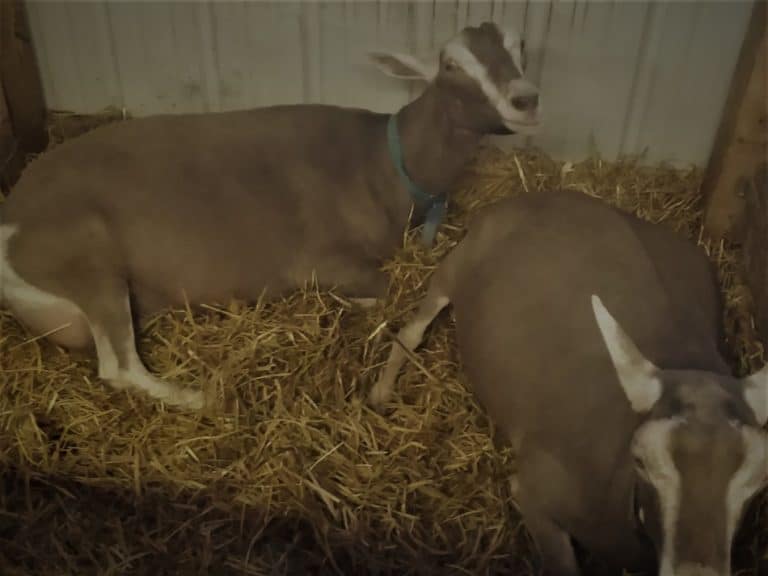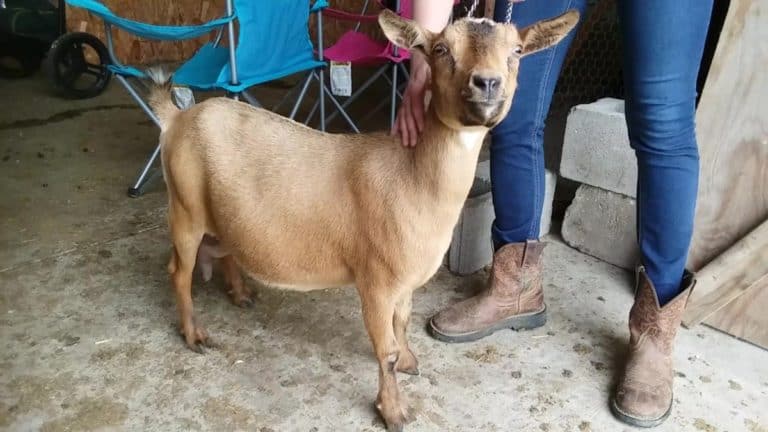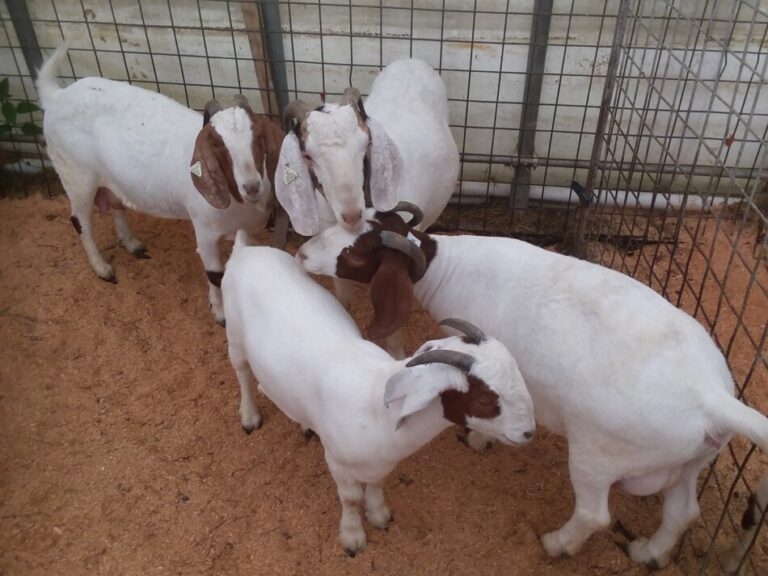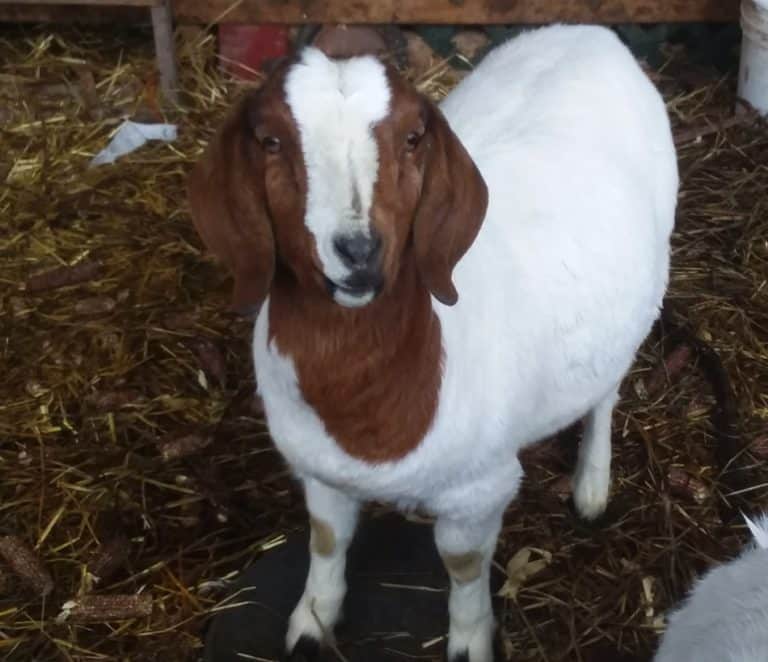How Often Does A Goat Need To Be Milked?
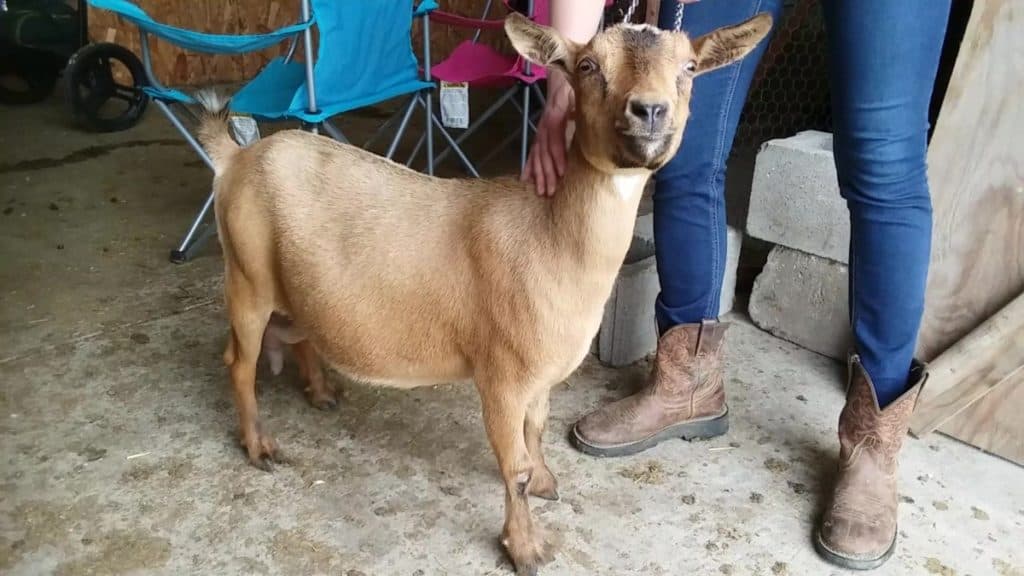
Thinking about getting a dairy goat for the family milk supply? You already know that a big part of her care is milking! What about the specifics here? How often does a dairy goat need to be milked?
A dairy goat needs to be milked twice a day, every day of her lactation.
Your milking goat will need to be milked twice a day, every day for the entire time she is milking.
Dairy goats need milked twice a day on a schedule
A key to success with your dairy goat is to keep them on a schedule.
Goats love a schedule and will respond positively to the repetition, once they’ve seen it a few times.
What should your milking schedule look like? It should be twice a day, everyday of the week and 12 hours apart.
It doesn’t really matter what times you pick, for example: 6 a.m. and 6 p.m., or 9 a.m. and 9 p.m., just that you can be sure to get the milking done at these times.
Keeping an irregular milking schedule or no schedule at all will reduce the amount of milk you get from your goat.
Goat milk production is based off supply and demand
Milk supply is based on supply and demand.
The milk is removed from the udder, by a nursing kid or you milking, and she will spend the next 12 hours replacing that missing milk.
This is natural, her body is made to refill the milk supply to keep her babies fed. When you milk her out, she is refilling the milk supply, as well.
If you want more details, here’s a great article on Dairy Goat Production, by Penn State Extension, which goes into management, breeds and nutrition.
Irregular milking schedules reduce your goat’s milk production
Milking only once a day or when ever you feel like it tells the goats body that she does not need to make as much milk next time.
She will reduce her milk production accordingly.
An irregular milking schedule will increase the likelihood that your doe will have problems, one of which could be mastitis.
All problems in a dairy animal will reduce milk production.
Once milk production goes down, it does not readily come back up to previous levels until the next lactation, meaning after more kids are born.
Length of lactation varies by goat
The length of lactation varies with the doe’s genetics, but it can be anywhere from 4-10 months.
Breeders that are using high quality genetics and concentrating their selection on a productive dairy goat will be have goat’s with a longer lactation.
These production focused breeders are the farms that you need to buy from if you want your diary goat to be a great milker and have a longer lactation.
Breeders who are selecting only for looks or are not paying attention to the genetics of their herd will be on the shorter end of the range.
While there is nothing wrong with breeding goats for looks only, be aware that this will not be the best milking genetics.
Choose a goat breeder that is milking the goats
Even if the breed you are considering is normally a dairy breed, make sure you buy from a breeder that is milking the goats and selecting for milking traits.
A good example here is the Nigerian Dwarf. Some herds are kept as pets, some as hobby herds for kid production and some as milkers.
Make sure you get your doe from a herd that focuses on milk production in the goats the are milking.
Goats from the pet or hobby focused herds will not be as productive as goats from a dairy focused herd.
For more information on Nigerian Dwarf goats specifically, read Nigerian Dwarf Goats, A Wonderful Goat In A Small Package.
You can milk any breed of goat
If you do not have dairy genetics available, consider milking the goat you have. Here’s a story for you:
My daughter was milking her Boer cross doe this summer. The goat, Asphodel, was milking fine as long as there was plenty of forage.
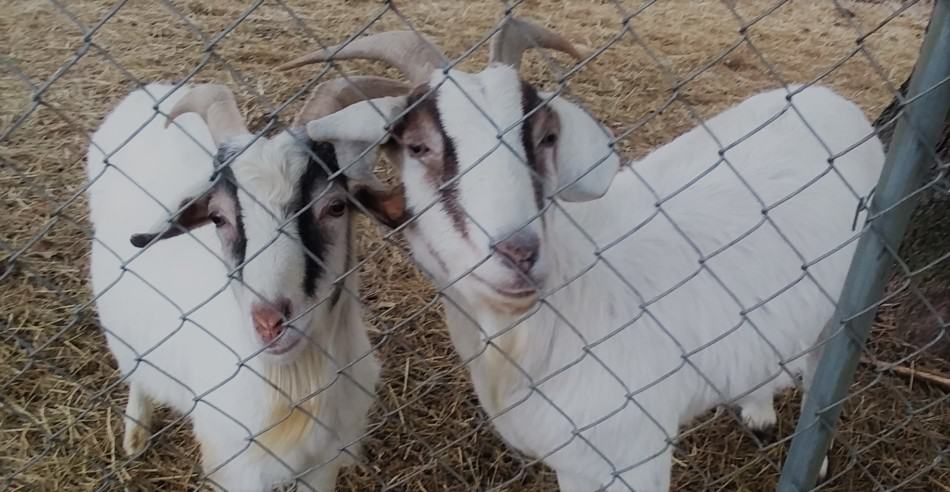
Once their yard started to falter, after the first frost, Asphodel’s milk production went down and they decided to stop milking her.
With supplementation, Asphodel would have continued to milk, but they decided against it and let her go dry (not milking).
They are happy to feed a 1st cutting hay, which does not have enough energy to support milking, and have some time off of milking until the next set of kids arrive.
The point to this story is that Asphodel is not a dairy goat, yet my daughter and her husband were getting more than enough milk for their needs from this one goat.
That’s a neat story that opens up the possibilities for your next goat.
I have to say, if you have diary goat genetics available, get them! A meat goat will never be the milker that a dairy goat will be.
But if you have to work with the goat you’ve got, give it a shot. You might be surprised.
